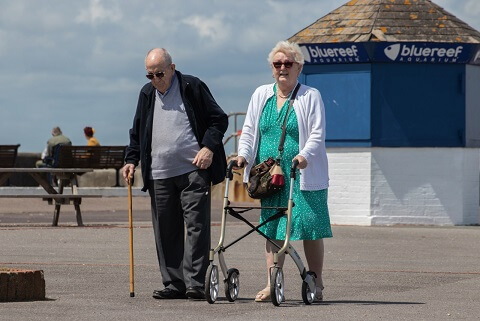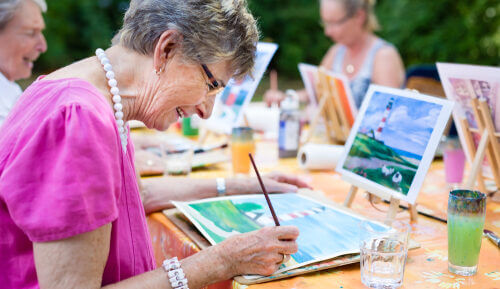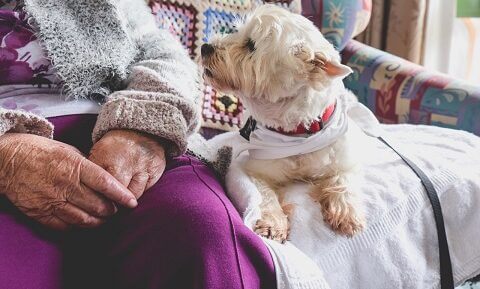
A big fear for many people when thinking about moving into a care home is that they will lose their independence. Maintaining autonomy over their own lives is essential to many people’s wellbeing.
Care homes recognise this, and the CQC even checks that residents are being supported to maintain their independence in a care home when they carry out inspections.
Homes that are good in this aspect can actually enable residents to be more independent than they were in their own homes.
Maintaining a routine
Having a routine is greatly beneficial to maintaining independence in a care home and keeping your brain ticking. This could be anything from a morning routine of washing and dressing, to weekly tasks such as collecting pensions or attending social events like a book group. Lack of routine can cause people, particularly those with dementia, to become confused.
Various equipment can help people to maintain a positive routine. From dementia clocks that remind people what season, time and day of the week it is, to handrails or chairs to help them continue to bathe unaided.
Receiving support
Care staff do their best to support you to continue with commitments that were important to you before you moved into a care home. Whether that is going to religious worship every week, a local club or other engagement, the team at the home will try to arrange for somebody to go with you. They can also book taxis with trusted providers. If you want to go somewhere regularly or as a one-off, speak to the care workers in plenty of time so they can arrange for a staff member to go with you.
Find your ideal care home
- Explore a wide range of care options and facilities
- Read independent ratings and reviews
- Connect directly with care homes to book a tour and discuss your needs
Having responsibilities
Unlimited leisure in retirement is not for everyone. Having your own duties and responsibilities can give a sense of purpose, belonging and prevent boredom. Some care homes support residents to have their own jobs within the home, if they want to, often using their skills. For example, a former tailor might enjoy ironing and mending clothes. Other jobs might include washing up, gardening, hoovering and even some cooking. These tasks can be both relaxing and stimulating, which is particularly beneficial for people with dementia.
Volunteering is another way to stay productive while living in a care home. Volunteering opportunities can be diverse and extremely rewarding, from driving people to hospital appointments to helping at animal shelters to being a special constable with the police. While many people living in care homes are unable to do these activities, many are fit and well enough and can speak to their home manager about their interest.
Pets are a great means of maintaining responsibility in a care home. Around a third of care homes are pet friendly. This means they either have their own animals, visitors can bring pets or residents can bring their pets to live with them when they move in. This is highly individual, and you’ll need to speak to your chosen care home about whether you can bring your pet. Caring for an animal not only promotes wellbeing and independence but can also help to maintain a daily routine.
Keeping active
Care homes employ activities coordinators to organise a schedule of stimulating activities each week. Some of these are in the home and some are trips out. They range from painting to gardening to trips to the seaside and residents can choose which activities they want to join in with. Through these activities, residents often find themselves more active, both socially and physically, than they had been when they lived in their own homes. Not only this, but a stimulating and active social life has been shown to ease symptoms of dementia, further enabling independence.
Activities can include exercise sessions and some care homes even have on-site gyms. Exercise helps people to stay physically independent and boosts brain function and general health.
Jonathan Hanbury, director of Atlas Dementia Care says: “To slow down the deterioration of the disease for an individual with dementia, brain stimulation, keeping active and being socially engaged is hugely important. There are many ways to enable this kind of stimulation on a daily basis which we use across our dementia day centres and during our home care visits. Reminiscence therapy should be used to trigger memories allowing the individual to share their life accomplishments whilst also providing a good opportunity to remind them of sounds and songs from their past too. Arts and crafts are a great way for an individual to show self-expression, focus their mind on being creative and reduce anxiety.”


